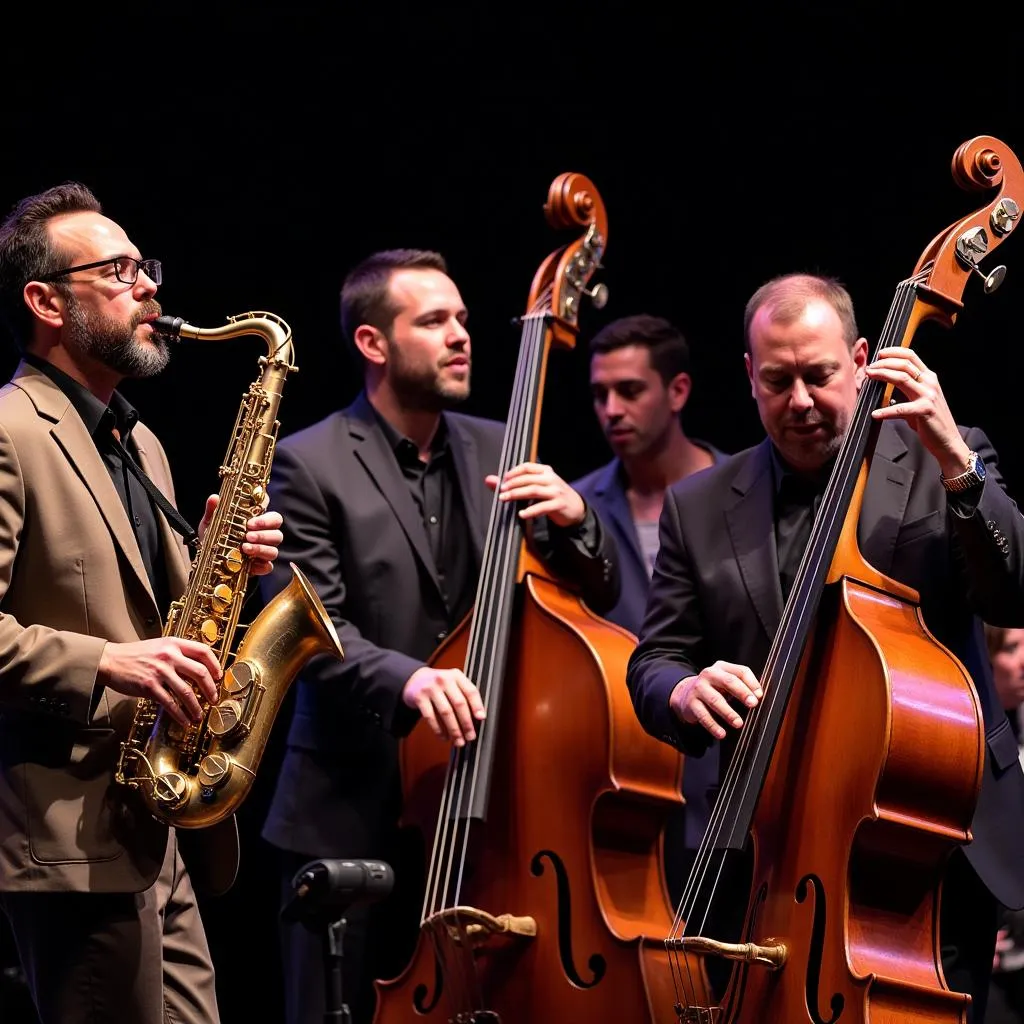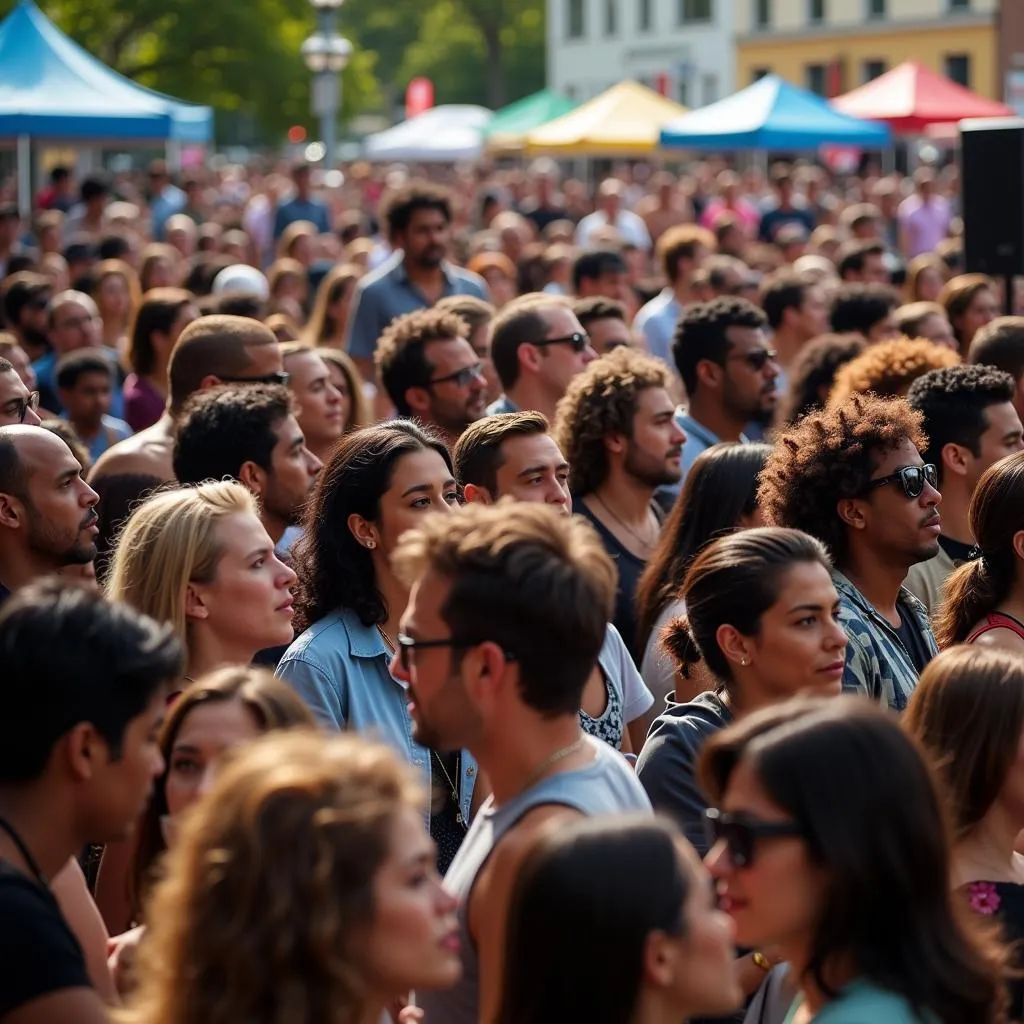From the smoky bars of New Orleans to bustling concert halls worldwide, jazz music has always been more than just entertainment; it’s a powerful force for building cultural understanding and fostering a sense of shared humanity. Jazz, with its roots firmly planted in African American traditions, speaks a universal language that transcends geographical borders and cultural differences. This article explores the profound impact of jazz on cultural society, highlighting its ability to bridge divides, promote dialogue, and inspire positive change.
The Language of Improvisation and Collaboration
One of the defining characteristics of jazz is its emphasis on improvisation and collaboration. Unlike strictly composed music forms, jazz thrives on spontaneity, allowing musicians to express their unique voices within a shared musical framework. This element of improvisation necessitates deep listening, respect for individual perspectives, and a willingness to adapt and build upon each other’s ideas.
In a cultural context, these principles become even more significant. Just as musicians from diverse backgrounds come together to create harmonious music, individuals from different cultures can engage in meaningful dialogue and collaboration, recognizing and valuing their distinct perspectives while working towards a common goal.
 Jazz Musicians Improvising on Stage
Jazz Musicians Improvising on Stage
Breaking Down Barriers and Challenging Norms
From its inception, jazz music has challenged social and cultural norms. During the era of segregation in the United States, jazz became a powerful symbol of resistance and a platform for social commentary. It provided a space where people of different races and backgrounds could come together, transcending societal divisions through shared artistic expression.
Even today, jazz continues to push boundaries and challenge the status quo. Contemporary artists experiment with new sounds, incorporate influences from diverse musical traditions, and use their music to address pressing social issues. This ongoing evolution ensures that jazz remains a relevant and powerful force for cultural change.
A Celebration of Diversity and Shared Heritage
Jazz music is a testament to the richness and beauty of cultural diversity. Born out of the fusion of African rhythms, European harmonies, and American blues traditions, jazz embodies the spirit of cultural exchange and hybridity. This unique blend of influences has resulted in a vibrant and constantly evolving art form that continues to inspire and captivate audiences worldwide.
By embracing and celebrating these diverse influences, jazz promotes a more inclusive and interconnected world, highlighting the shared experiences and common ground that unite us beyond our differences.
 Jazz Festival: A Tapestry of Cultures
Jazz Festival: A Tapestry of Cultures
Jazz Education: Cultivating Empathy and Understanding
Beyond its artistic merit, jazz education plays a crucial role in fostering cultural understanding. By learning about the history, cultural context, and social significance of jazz, students develop a deeper appreciation for different cultures and perspectives. Jazz education programs often encourage collaboration and cross-cultural dialogue, providing opportunities for students to interact with individuals from diverse backgrounds and develop empathy and respect for others.
These educational initiatives are essential for building a more peaceful and tolerant world. By nurturing the next generation of jazz musicians and enthusiasts, we cultivate a global community that values cultural diversity and embraces dialogue as a means of promoting peace and understanding.
Conclusion: Jazz as a Catalyst for Positive Change
Jazz music, with its emphasis on improvisation, collaboration, and social commentary, remains a potent force for positive change in our world. By breaking down barriers, celebrating diversity, and promoting cross-cultural dialogue, jazz inspires us to imagine and create a more just and equitable society. As we continue to engage with this vibrant and evolving art form, let us harness its transformative power to build bridges of understanding and create a more harmonious world.
FAQs about Jazz and Cultural Society
1. How has jazz music influenced other genres?
Jazz has had a profound impact on countless musical genres, including R&B, soul, funk, and even rock and roll. Its influence can be heard in the improvisational solos, syncopated rhythms, and harmonic innovations that characterize these genres.
2. Where can I experience live jazz music?
Live jazz performances can be enjoyed in a variety of venues, from intimate jazz clubs to large concert halls and festivals. Many cities worldwide have thriving jazz scenes, offering a diverse range of performances to suit all tastes.
3. Are there resources available for learning more about jazz history and culture?
Yes, numerous books, documentaries, and online resources delve into the rich history and cultural significance of jazz. Museums and cultural institutions also offer exhibitions and educational programs dedicated to exploring this influential art form.
4. How can I get involved in supporting jazz education and outreach programs?
Many organizations dedicated to promoting jazz education and outreach rely on the support of volunteers and donors. Consider contributing your time, resources, or expertise to help nurture the next generation of jazz musicians and enthusiasts.
Explore more on the intersection of culture and global citizenship:
- Discover the transformative power of volunteer travel in our article [american hiking society volunteer vacation](https://societyforpeace.com/american-hiking society-volunteer-vacation/).
For any assistance, please contact us at:
Phone Number: 02043854663
Email: [email protected]
Address: Khu 34, Bac Giang, 260000, Vietnam.
Our dedicated customer support team is available 24/7 to assist you.